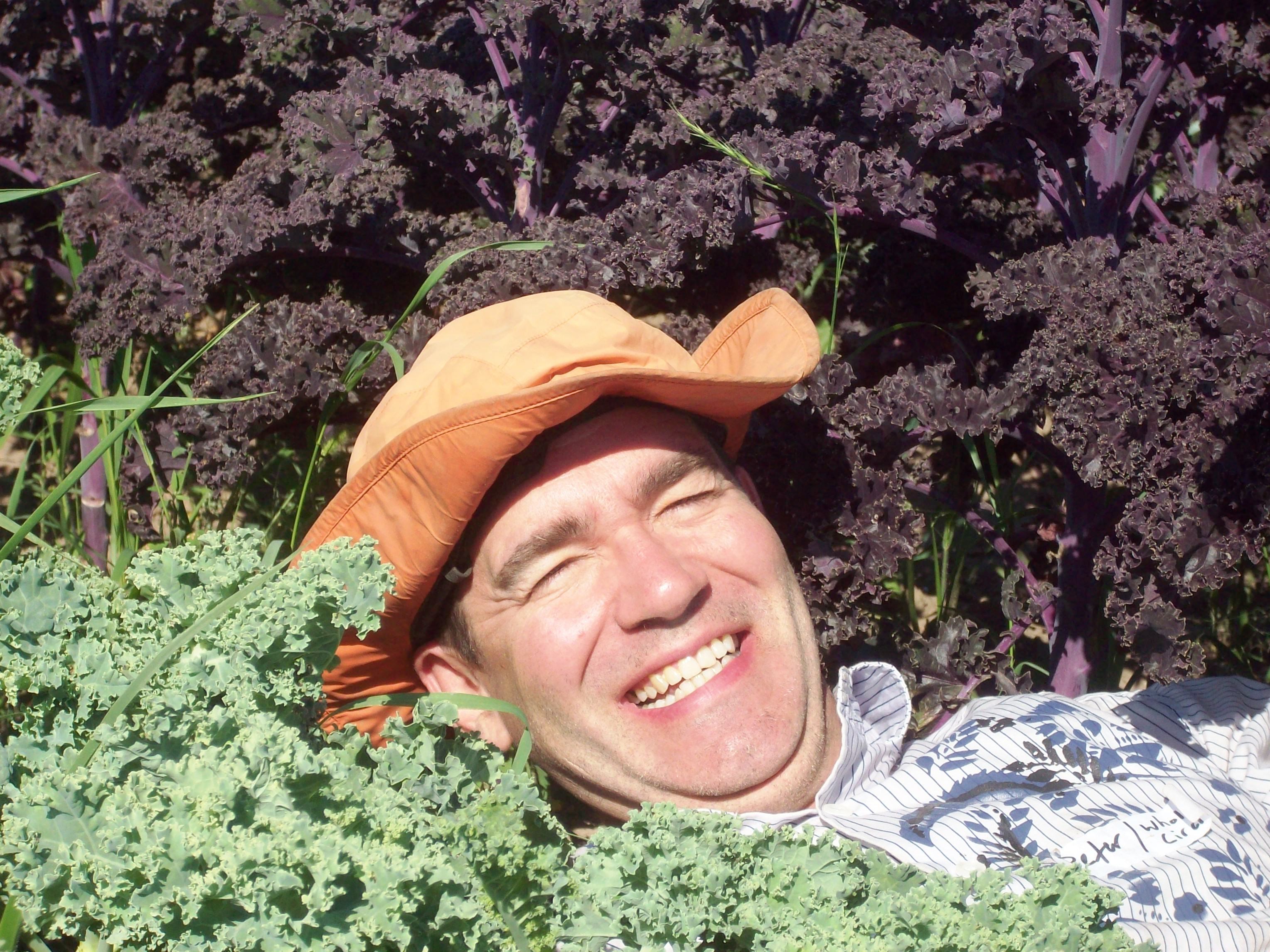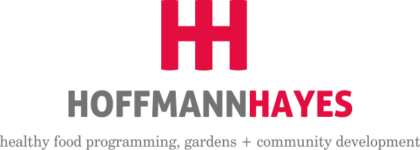In this Food Makers & Changers interview, we get to know the Founder of the Toronto Garlic Festival, and co-coordinator of the Greenbelt Farmers’ Market Network, Peter McClusky.

About Peter:
Peter spent many fruitful years in New York in marketing-related ventures, including as VP International Distribution at Photolibrary (now Getty Images). In 2009 he moved back to his hometown, Toronto, where he pursues his interest in local farming. His work and volunteerism in small scale agriculture includes interning for a year at Whole Circle Farm; fundraising for, and starting and managing farmers’ markets (Aberfoyle Farmers’ Market and Regent Park Farmers’ Market); co-coordinating the Greenbelt Farmers’ Market Network, and starting the Toronto Garlic Festival. He grows heirloom garlic on a farm near Acton, Ontario. He lives in downtown Toronto and holds a degree in philosophy from the University of Toronto. His book, Ontario Garlic: The Story from Farm to Festival (History Press, 2015) is a social, scientific and cultural history of garlic in Ontario, and traces the origin of garlic to central Asia 10,000 years ago.
What is one change you’d like to see happen within the food system and why?
One change that would have immensely positive consequences would be for food to be perceived not as a commodity. This is a rare moment in human history when, on balance, there is a great abundance of food in the world, yet it is perceived, especially in the western world, as a commodity, like internet bandwidth, or phone plan minutes. Yet unlike most real commodities, in trying to get food at the cheapest price we’ve cheapened the way it’s produced. You can taste the difference.
What has been your most meaningful and rewarding work to date?
Working as a farm intern in 2010. We were paid a $50 per week stipend, plus room and board in exchange for working 12 hour days starting with milking the cows at 6 am. It’s incomprehensible to anyone who hasn’t done it. Yet it was the best year of my life. It opened my eyes to the importance of local agriculture, and the importance of soil. And I ate some of the best meals of my life.
If you could only have one non-local food for the rest of your life, what would it be?
I can’t say the name, I don’t want to promote the brand. I hate that I love them.
Where do you stand on local vs organic vs simply eating whole foods? What are your personal priorities when it comes to your own diet?
Imported organic food doesn’t make sense. For example, there may be few or no chemical inputs to grow organic blueberries from Chile, but what about the inputs to transport those blueberries 8,500 km to my supermarket? In the big scheme of things it doesn’t make sense. Many Ontario farmers aren’t organic certified because they’d prefer to avoid the paperwork, yet their methods are organic. How do you find them? Go to your local farmers’ market and ask. Get to know your local farmer.
What would surprise most people about your history with food (and/or embarassing food stories)?
I am known as a bit of a garlic fanatic, yet I used to cook garlic like it was an onion, and of course, it would burn, but I didn’t know why. I now know that because garlic has less water than onions it burns after only a few seconds in hot oil. But for years I didn’t appreciate this fact, and I would blithely cook garlic at the same time as the onions. Now I add garlic after the wet ingredients are added.
Who do you most admire in the food movement?
My aunt Nina. She’s 96 years old. She remembers when postage stamps cost one cent, there was no plastic wrap, paper or plastic bags, and there was not a “food movement.” As a young girl in the 1920’s growing up in Beaverton, Ontario she was embarrassed to have to pick fresh fruit and vegetables from the family garden because it reminded her that they couldn’t afford canned food. After the war she lived on a farm with her husband Walter, with no electricity, no refrigeration, no radio, and no phone. Talking to Nina about attitudes to food then and now makes me realize how removed we are from the soil that most of our food grows in. We’re obsessed with food yet we don’t appreciate where it comes from and how it magically arrived here in that plastic wrapper.
What is your favourite season and why?
Winter. It presents opportunities and challenges to use winter vegetables.
Do you have any advice for newcomers to the food movement, and how they can make a contribution?
It’s great to have passion for what you do, but make a plan, because if you rely solely on your passion you’ll burn out.
Do you have any advice for veterans of the food movement?
Listen to new voices. Don’t be self-righteous.
If you came back to earth for three more lifetimes, what life form would you choose to be and why?
Fish, because I love swimming. A bird, flying is like swimming. And third? A red wriggler, see below.
What do you daily or weekly to try and be a part of the solution when it comes to creating a sustainable food system?
I love composting. I do hot (thermophilic) composting and worm composting, not always very well. But composting is a great way to introduce kids and adults to the cycle of life. It should be mandatory school curriculum. It’s absurd that we have a green bin program. When I become mayor I will mandate that every resident must do worm composting at home!
Is there a fruit or vegetable that you just won’t eat?
Pears – they’re like a mushy apple. Well, pear and pecorino cheese is a fantastic combination, so maybe I don’t have a “won’t-eat” veg or fruit.
A quick summary of your approach to community development.
Ummm, talk to people. Find out what they want and, so you can anticipate issues, learn what their fears are.
Favourite junkfood?
I can’t say, again, I don’t want to promote the brand.
This post is part of the HH Food Makers and Changers series, introducing you to friends in the food community that are making a big difference.
